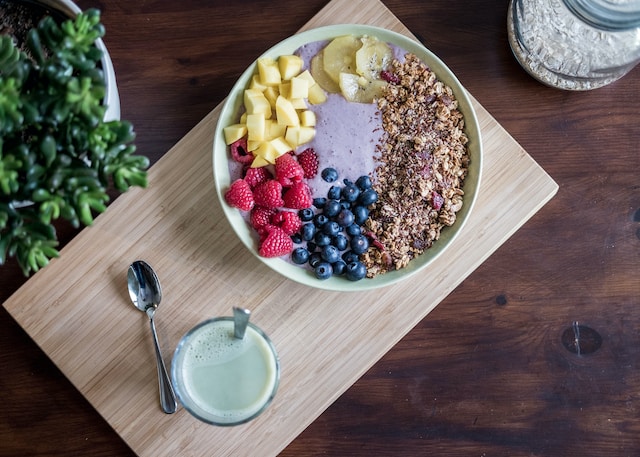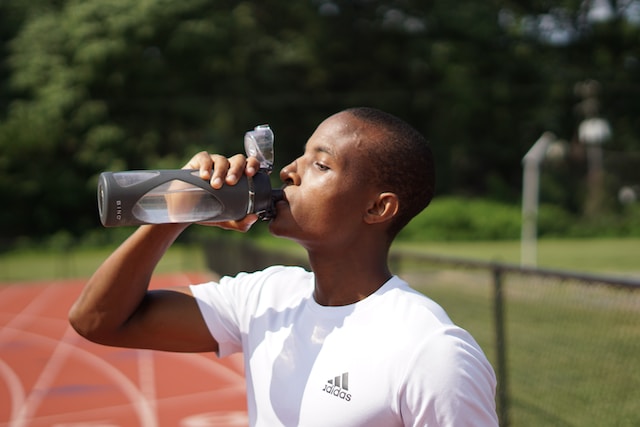
As we stride into a new era of health and wellness, the integration of fitness and plant-based living has emerged as a powerful combination. This synergistic approach recognizes not only the importance of physical activity but also the nourishing benefits of a plant-based diet. By intertwining these two essential elements, we unlock the potential to achieve optimal well-being, vibrant energy, and a profound connection with nature itself.
Plant-Based Nutrition for Optimal Fitness
In the realm of fitness, nutrition plays a crucial role in fueling our bodies and providing the necessary nutrients for peak performance. Plant-based nutrition, in particular, offers a multitude of benefits, including enhanced recovery, improved endurance, and reduced inflammation. This section will explore the principles of plant-based nutrition for optimal fitness, delving into key considerations and highlighting nutrient-rich plant-based foods that can support your fitness journey.
- Foundation of a Plant-Based Diet:
Center your diet around whole, unprocessed plant-based foods, such as fruits, vegetables, whole grains, legumes, nuts, and seeds. This way, you can ensure a rich intake of essential vitamins, minerals, fiber, and antioxidants.
Creating a balanced macronutrient profile is essential for maintaining energy levels and supporting athletic performance. Focus on obtaining an appropriate balance of carbohydrates, proteins, and healthy fats from plant-based sources.
- Essential Nutrients for Fitness:
Contrary to popular belief, it is entirely possible to meet your protein needs on a plant-based diet. Opt for a variety of protein sources such as legumes, tofu, tempeh, seitan, edamame, quinoa, and hemp seeds to ensure an adequate intake of essential amino acids.
While some individuals may worry about meeting iron and calcium requirements on a plant-based diet, numerous plant-based foods contain ample amounts of these nutrients. Incorporate leafy greens, beans, lentils, tofu, fortified plant-based milk, and seeds into your daily meals for iron and choose plant-based sources like leafy greens, fortified plant-based milk, tofu, and tempeh for calcium.

Plant-based sources of omega-3 fatty acids, such as chia seeds, flaxseeds, hemp seeds, and walnuts, can be included in your diet to support cardiovascular health, reduce inflammation, and aid in post-exercise recovery.
- Meal Planning for Active Lifestyles:
Opt for easily digestible carbohydrates from sources like bananas, dates, sweet potatoes, or whole grains to provide energy for your workouts. Pair these carbs with a small amount of protein, such as a handful of nuts or a spoonful of nut butter, to enhance muscle repair.
Following intense exercise, prioritize replenishing your glycogen stores with carbohydrates. Combine these carbohydrates with a moderate amount of protein to support muscle recovery and growth. Examples include a smoothie with plant-based protein powder, mixed berries, and spinach or a bowl of oatmeal topped with nut butter and sliced banana.
Staying adequately hydrated is essential for active individuals. Remember to drink water throughout the day and consider adding hydrating plant-based foods like watermelon, cucumbers, and citrus fruits to your diet.
Pre-Workout Fueling and Hydration
Preparing your body for a workout is key to maximizing performance and preventing fatigue. Proper pre-workout fueling and hydration play a vital role in providing your muscles with the necessary energy and maintaining optimal fluid balance. In this section, we will explore how plant-based choices can power your pre-workout routine.
Hydration
Before engaging in any physical activity, it’s essential to start with proper hydration. Water is the primary source of hydration, and plant-based foods can naturally boost your fluid intake. This is why fitness and plant-based living go well together.

Consider incorporating hydrating options like watermelon, cucumbers, and citrus fruits into your diet. These refreshing choices not only provide hydration but also offer a natural source of electrolytes, aiding in proper muscle function.
Pre-Workout Snacks
Choosing the right pre-workout snack can provide you with a sustained release of energy and help prevent muscle fatigue. Here are some plant-based options to consider:
- Banana with Almond Butter: This quick and easy snack combines the natural sugars from the banana, providing instant energy, and the healthy fats and protein from almond butter for sustained fuel during your workout.
- Whole Grain Toast with Avocado: Avocado is not only a creamy and delicious addition to your toast but also a great source of healthy fats. Pairing it with whole grain bread provides complex carbohydrates that your body can convert into energy, ensuring a steady release of fuel to keep you going.
- Homemade Energy Bars: Create your own plant-based energy bars using ingredients like oats, dates, nuts, and seeds. These bars offer a perfect balance of carbohydrates, proteins, and fats to fuel your workout without any artificial ingredients or added sugars.
Timing
Finding the right timing for your pre-workout meal or snack is essential. Aim to consume your pre-workout fuel around 30 minutes to 1 hour before your exercise session. This allows your body enough time to digest the nutrients and utilize them efficiently during your workout.
Tailoring to individual preferences
Each person’s body is unique, and preferences regarding food choices and digestion may vary. Experiment with different plant-based options and observe how your body responds. Listen to your body’s cues and adjust accordingly. Some individuals may perform better with a lighter snack before their workout, while others may require a more substantial meal to sustain their energy levels.
Post-Workout Recovery and Nutrition
A key consideration with fitness and plant-based living is the importance of post-workout nutrition. After an intense workout, proper post-workout recovery is essential to replenish your energy stores, repair muscle tissue, and promote overall muscle growth.
Refuel with Carbohydrates
Following exercise, your body’s glycogen stores are depleted, and it’s crucial to replenish them promptly. Consuming carbohydrates after your workout helps restore glycogen levels and provides your muscles with the fuel they need for recovery. Opt for plant-based carbohydrates such as sweet potatoes, quinoa, or whole grain bread to provide a steady release of energy.

Repair and Rebuild with Protein
Protein is vital for repairing and rebuilding muscle tissue that may have been damaged during exercise. While some may believe that protein intake is limited on a plant-based diet, there are abundant sources available to fulfill your protein needs. Consider adding plant-based protein sources like lentils, chickpeas, tofu, or plant-based protein powder to your post-workout meals or snacks.
Rehydrate and Replenish Electrolytes
Sweating during your workout leads to fluid loss and the depletion of important electrolytes such as sodium, potassium, and magnesium. Rehydrating and replenishing electrolytes are crucial for proper muscle function and preventing dehydration. Choose hydrating plant-based options like coconut water, fresh fruit juices, or homemade electrolyte-rich smoothies that contain fruits such as bananas and berries.
Antioxidant Power
Intense exercise generates free radicals in the body. These harmful molecules can cause oxidative stress and inflammation. Including antioxidant-rich plant-based foods in your post-workout meal or snack can help counteract the damage caused by free radicals. Blueberries, spinach, kale, and other dark leafy greens are excellent choices for their high antioxidant content.
The Timing Factor
Timing your post-workout meal or snack is key to optimize muscle recovery. Aim to consume a balanced snack or meal within 30 minutes to an hour after completing your workout. This window of time is when your body is most receptive to absorbing nutrients and replenishing energy stores.
Integrating fitness and plant-based living can provide an array of benefits, including enhanced muscle recovery, reduced inflammation, and improved overall performance. By incorporating nourishing carbohydrates, protein-rich foods, hydration, antioxidants, and proper timing, you can fully support your body’s recovery process and uncover the true potential of your fitness journey.